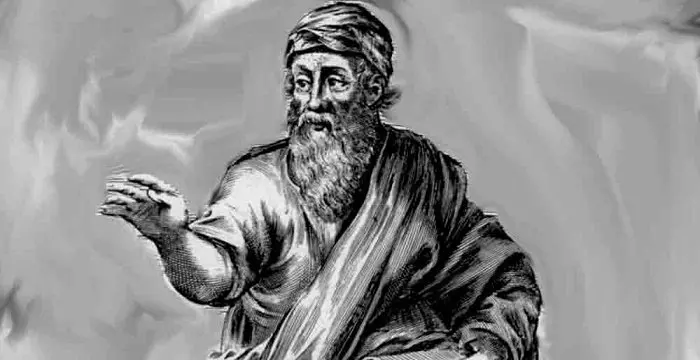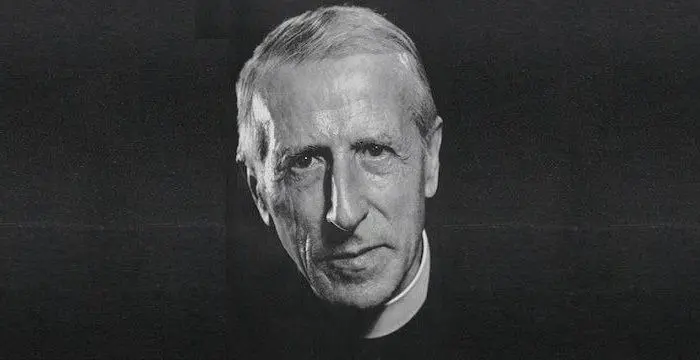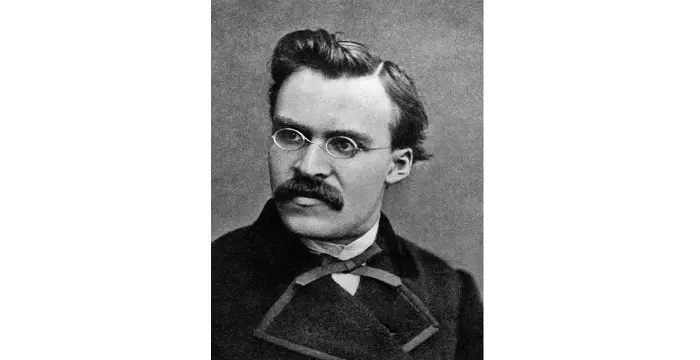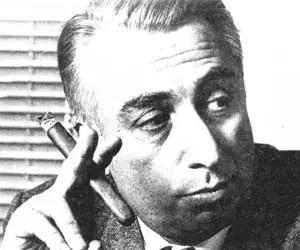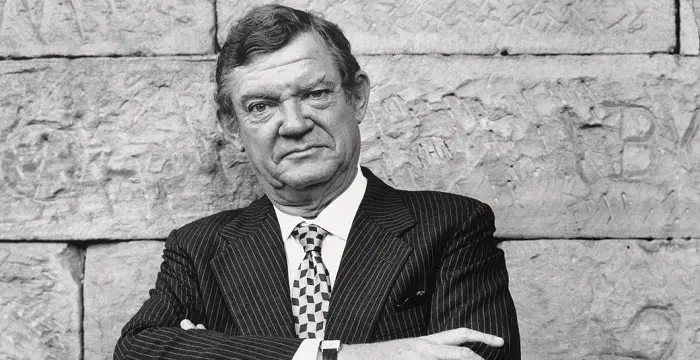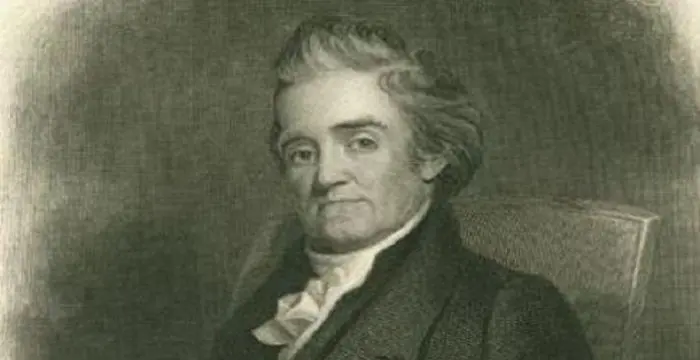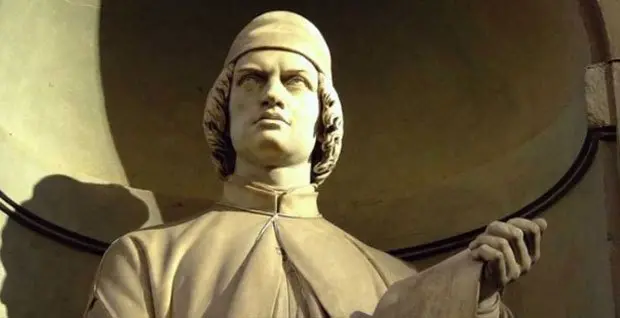
Roland Barthes - Literary Theorist, Life Achievements and Facts
Roland Barthes's Personal Details
Roland Barthes was a French literary theorist, critic and semiotician
| Information | Detail |
|---|---|
| Birthday | November 12, 1915 |
| Died on | March 25, 1980 |
| Nationality | French |
| Famous | Critics & Connoisseurs, Philosophers, Linguists, Literary Theorist, Philosophers |
| Known as | Roland Gérard Barthes |
| Universities |
|
| Cause of death |
|
| Birth Place | Cherbourg-Octeville |
| Religion | Protestant |
| Gender | Male |
| Father | Louis Barthes |
| Mother | Henriette Barthes |
| Sun Sign | Scorpio |
| Born in | Cherbourg-Octeville |
| Famous as | French Literary Theorist & Philosopher |
| Died at Age | 64 |
// Famous Philosophers
Pythagoras
Pythagoras of Samos was a Greek mathematician and philosopher. Read on to learn more about Pythagoras’s profile, childhood, life and timeline.
Pierre Teilhard de Chardin
Pierre Teilhard de Chardin was a famous French philosopher and a priest who was also known for his controversial writings. Read more about the life and works of this philosopher in the following article.
Friedrich Nietzsche
Friedrich Nietzsche was a famous 19th century German philosopher and philologist. Check out this biography to know about his childhood, family, life history and achievements.
Roland Barthes's photo
Who is Roland Barthes?
Roland Barthes is a legendary figure and semiotician, whose ideas encouraged the advancement of a number of fields including structuralism, anthropology, post-structuralism, semiotics and social theory. He was highly influenced by Ferdinand de Saussure’s semiology throughout his life and thus, began to develop his own complex theoretical concepts that became central to a number of schools of thought in France and Europe. He was also a leading critic of his time and a prominent theoretical personality across Europe and America. Interestingly, he left an indelible impression wherever he went and making himself known in popular culture as well. Some of his well-known works included, ‘Writing Degree Zero’, ‘Mythologies’, ‘Criticism and Truth’, ‘The Pleasure of the Text’ and ‘Image Music Text’. Most of his works carried with them a multiplicity, applying semiotic theory and literary critique. He was often potholed against more traditional French scholars, but never minding their thoughts, he managed to make important advances in a number of areas. During his time, he was considered a living legend and a leading critic of his generation. His works secured a number of translations since his untimely death in an accident at the age of sixty-four.
Childhood & Early Life
Roland Gerard Barthes was born on November 12, 1915 to Louis Barthes, a naval officer and Henriette Barthes, in Cherbourg, Normandy.
After the death of his father in a battle, he was raised by his mother, aunt and grandmother in Urt, a village and in Bayonne. When he turned 11, the family moved to Paris.
Through most part of his early life, he was beleaguered by tuberculosis and writhed from repeated physical breakdowns that affected a large part of his career.
His illnesses kept him away from education and also became the main reason for him to be out of military service during World War II.
From 1935 to 1939, he spent his time at the Sorbonne, where he earned a certificate in classical letters and philology. He published a number of papers, struggling with his health at the same time.
Career
In 1948, he returned to purely academic work, being offered a number of short-term jobs in institutes in Romania, Egypt and France. During this time, he wrote his first work for the Paris publication, ‘Combat’, which became the basis for his first-full length work.
In 1952, he studied lexicology and sociology and settled at the ‘Centre National de la Recherche Scientifique’. His first full-length work, ‘Writing Degree Zero’ was published the subsequent year.
During his seven year tenure with the institute, he began writing a number of essays for the magazine ‘Les Lettres Nouvelles’, in which he undid myths of popular culture. His essays were later compiled in a novel that was titled, ‘Mythologies’, in 1957.
In the 1960s, he spent most of time studying semiology and structuralism, as well as chairing a number of faculty positions in Europe.
His views led to an aggressive tete-a-tete with Raymond Picard, a professor of literature, who despised Barthes’ views. He came back with a confutation in his book, ‘Criticism and Truth’, which was published in 1966.
In the latter half of the 1960s, he travelled around the world and also wrote one of his best-known works at this time—an essay titled, ‘The Death of the Author’, in 1967.
During this period, he continued to contribute essays to the modern literary magazine, ‘Tel Quel’ and also began developing theoretical ideas. One of his most phenomenal works titled ‘S/Z’ was published in 1970. The next year, he served as a visiting faculty for the University of Geneva.
In 1975, he wrote an autobiography titled ‘Roland Barthes’ and two years later, he chaired the ‘Semiologie Litteraire’ at the College de France. The same year, his mother passed away— this was a severe blow to the theorist’s life and works. Two years later, he published ‘A Lover’s Discourse’.
In 1980, he published his last works, ‘Camera Lucida’, which was mainly an examination into the nature and crux of photography.
One of his lesser-known works, ‘Travels in China’, was published posthumously, in 2012.
Major Works
‘Writing Degree Zero’ was his first book, first published in 1953. Largely considered one of his magnum opuses, this book compiled a number of short essays and also taught readers about the dissimilarity between language and writing. The original version was written in French and was translated to English in 1967 by Jonathan Cape. It has also been ranked at the no. 63 position on Le Monde’s list of ‘100 Books of the Century’.
‘S/Z’ published in 1970 is one of his most important works and offers a structuralist analysis of ‘Sarrasine’. The book is believed to have had a major impact in literary criticism and is considered a masterpiece that helped develop structuralism and post-structuralism ideologies.
Personal Life & Legacy
He maintained a diary—some of the excerpts of which were published posthumously titled, ‘Soirees de Paris’ and ‘Light of the Sud Ouest’, which threw light on his earlier erotic encounters with boys and during his stay in Paris.
He shared an extremely close bond with his mother, whom he lived with for 60 years of his life. After her demise, he was shattered and grieved his mother’s death till the time of his death.
He was extremely interested in photography and believed that photographs presented a real representation of the world, an explanation of which was given in his works, ‘Camera Lucida’.
He was hit by a laundry van in Paris on February 25, 1980 and died a month later, succumbing to the injuries he sustained during the accident.
His legacy is an extensive one. Most of Barthes’ works gave rise to structuralism, semiotics and post-structuralism schools of thoughts. Apart from these broad genres, his influence can be felt in every field concerned with the exemplification of material and prototypes of communiqué including photography, literature, music and computers.
Trivia
This popular literary critic and semiotician of the ‘S/Z’ fame founded the ‘Groupe Theatral Antique’ and the publication, ‘Theatre Populaire’.
// Famous Critics & Connoisseurs
Maria Altmann
Maria Altmann was an Austrian-American Jewish refugee who escaped Nazi occupied Austria and took refuge in America. This biography profiles her childhood, life, achievements and some fun facts.
Robert Hughes
Robert Hughes was an Australian-born art critic and writer. This biography profiles his childhood, life, achievements and timeline.
Roland Barthes biography timelines
- // 12th Nov 1915Roland Gerard Barthes was born on November 12, 1915 to Louis Barthes, a naval officer and Henriette Barthes, in Cherbourg, Normandy.
- // 1935 To 1939From 1935 to 1939, he spent his time at the Sorbonne, where he earned a certificate in classical letters and philology. He published a number of papers, struggling with his health at the same time.
- // 1948In 1948, he returned to purely academic work, being offered a number of short-term jobs in institutes in Romania, Egypt and France. During this time, he wrote his first work for the Paris publication, ‘Combat’, which became the basis for his first-full length work.
- // 1952In 1952, he studied lexicology and sociology and settled at the ‘Centre National de la Recherche Scientifique’. His first full-length work, ‘Writing Degree Zero’ was published the subsequent year.
- // 1953 To 1967‘Writing Degree Zero’ was his first book, first published in 1953. Largely considered one of his magnum opuses, this book compiled a number of short essays and also taught readers about the dissimilarity between language and writing. The original version was written in French and was translated to English in 1967 by Jonathan Cape. It has also been ranked at the no. 63 position on Le Monde’s list of ‘100 Books of the Century’.
- // 1957During his seven year tenure with the institute, he began writing a number of essays for the magazine ‘Les Lettres Nouvelles’, in which he undid myths of popular culture. His essays were later compiled in a novel that was titled, ‘Mythologies’, in 1957.
- // 1966His views led to an aggressive tete-a-tete with Raymond Picard, a professor of literature, who despised Barthes’ views. He came back with a confutation in his book, ‘Criticism and Truth’, which was published in 1966.
- // 1967In the latter half of the 1960s, he travelled around the world and also wrote one of his best-known works at this time—an essay titled, ‘The Death of the Author’, in 1967.
- // 1970During this period, he continued to contribute essays to the modern literary magazine, ‘Tel Quel’ and also began developing theoretical ideas. One of his most phenomenal works titled ‘S/Z’ was published in 1970. The next year, he served as a visiting faculty for the University of Geneva.
- // 1970‘S/Z’ published in 1970 is one of his most important works and offers a structuralist analysis of ‘Sarrasine’. The book is believed to have had a major impact in literary criticism and is considered a masterpiece that helped develop structuralism and post-structuralism ideologies.
- // 1975In 1975, he wrote an autobiography titled ‘Roland Barthes’ and two years later, he chaired the ‘Semiologie Litteraire’ at the College de France. The same year, his mother passed away— this was a severe blow to the theorist’s life and works. Two years later, he published ‘A Lover’s Discourse’.
- // 1980In 1980, he published his last works, ‘Camera Lucida’, which was mainly an examination into the nature and crux of photography.
- // 25th Feb 1980He was hit by a laundry van in Paris on February 25, 1980 and died a month later, succumbing to the injuries he sustained during the accident.
- // 2012One of his lesser-known works, ‘Travels in China’, was published posthumously, in 2012.
// Famous Linguists
Noam Chomsky
Chomsky is an American linguist, political theorist, and activist, often referred to as "the father of modern linguistics”. Check out this biography to know about his childhood, family life, achievements and other facts related to his life.
Noah Webster
Noah Webster was a famous American lexicographer, political writer, editor and English language spelling reformer. This biography provides detailed information about his childhood, life, works, achievements and timeline.
Steven Pinker
Steven Pinker is a Canadian-American cognitive psychologist and linguist. Check out this biography to know about his birthday, childhood, family life, achievements and fun facts about him.
Enoch Powell
Brigadier J. Enoch Powell was a British politician, classical scholar and linguist best known for his controversial views on immigration. This biography provides detailed information about his childhood, life, achievements, works & timeline.
Leon Battista Alberti
Leon Battista Alberti was an Italian author, architect, poet, linguist and cryptographer. Check out this biography to know about his childhood, family life, achievements and other facts related to his life.
Roland Barthes's FAQ
What is Roland Barthes birthday?
Roland Barthes was born at 1915-11-12
When was Roland Barthes died?
Roland Barthes was died at 1980-03-25
Where was Roland Barthes died?
Roland Barthes was died in Paris
Which age was Roland Barthes died?
Roland Barthes was died at age 64
Where is Roland Barthes's birth place?
Roland Barthes was born in Cherbourg-Octeville
What is Roland Barthes nationalities?
Roland Barthes's nationalities is French
What was Roland Barthes universities?
Roland Barthes studied at Lycee Louis-le-Grand, Paris (1930-34)
What is Roland Barthes's cause of dead?
Roland Barthes dead because of Car Accident
What is Roland Barthes's religion?
Roland Barthes's religion is Protestant
Who is Roland Barthes's father?
Roland Barthes's father is Louis Barthes
Who is Roland Barthes's mother?
Roland Barthes's mother is Henriette Barthes
What is Roland Barthes's sun sign?
Roland Barthes is Scorpio
How famous is Roland Barthes?
Roland Barthes is famouse as French Literary Theorist & Philosopher
